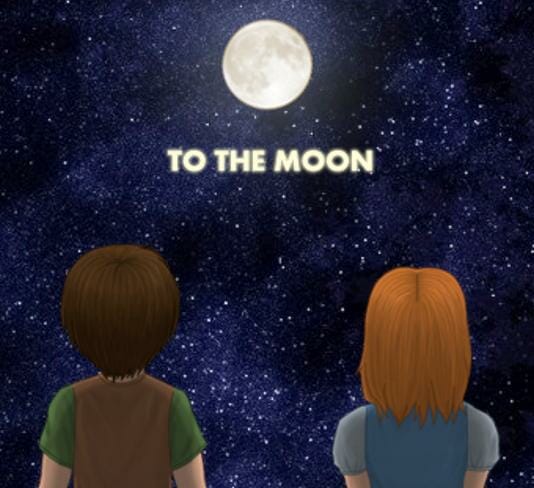To the Moon (PC)

“You’re the hardest thing I ever tried to get off my mind.” – the Marshall Tucker Band
I’m a reasonably intelligent man. At least I’m educated. I own a few books. Sometimes I wish videogames would respect that.
There’s no reason a game can’t make us think or feel in the same way movies and books can, but so few games have even tried that it’s easy to think otherwise. To the Moon, a heavily story-driven point-and-click adventure game, tries to single-handedly fill that emotional gap with compound miseries. It’s effective to a point, but haphazard writing and a late-game shift in focus make me long for a tighter script. To the Moon is a few drafts away from greatness.
Memory is at the heart of To the Moon. In the future science lets us travel into the memories of others, through which doctors can relieve current-day mental and emotional pains by constructing new memories. In To the Moon we control two such doctors as they travel through the mind of a dying man and witness the tragedies and successes that marked his life. It’s like Sierra On-Line turned Inception and Eternal Sunshine of the Spotless Mind into a 16-bit RPG.
The memories we track down throughout the man’s life can be triggered by objects, like a stuffed platypus or Animorphs books (this game’s writer, Kan Gao, apparently loves Animorphs), or a location where something important happened in his life. Sometimes you can trigger a memory just by walking around enough. These memories usually reveal a little bit more about the man’s past and his relationship with his deceased wife. Learning that history and tracing the importance of recurring totems like the platypus and origami rabbits kept me enthralled throughout the game’s first act.

In an awkward but understandable concession to the fact that To the Moon is actually a game and not an interactive young adult novel, each uncovered memory fills a bar in a memory meter. When all five bars are full we have to solve a simple puzzle to move on to the next sequence. Both incongruous elements slightly take me out of the story whenever they occur.